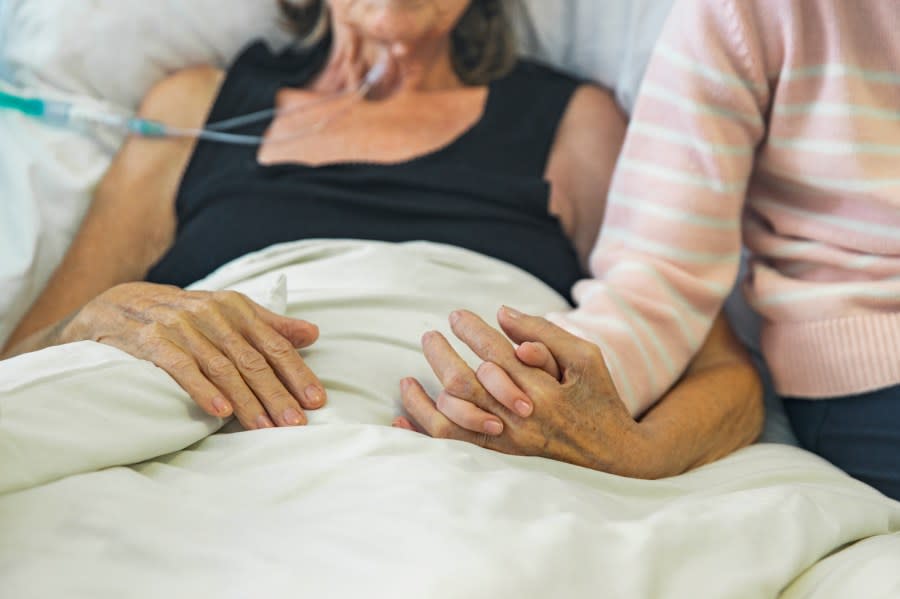“Facing your fears” meets scientific fact in new therapy

(COLORADO) — A new therapy developed by Joanna Arch, a professor in the Department of Psychology and Neuroscience at the University of Colorado Boulder, is helping cancer patients face and process end-of-life fears.
The therapy is a written exposure-based coping intervention called EASE. The therapy is based on “written exposure therapy” (WET) which is a practice that helps people with post-traumatic stress disorder (PTSD) by encouraging them to write about past traumas.

EASE is different because it focuses on what lies ahead, on fears specifically related to the end of a person’s life, like the fear of being forgotten or the fear of saying goodbye to their children.
“It’s often easier to write about something traumatic than to speak it out loud, especially to someone you don’t know that well,” said Professor Arch. “Our findings suggest that participants can write their way into greater wellness in the form of strongly reduced cancer-related trauma, depression, anxiety and fear.”
The patients go through 5 sessions, identifying their biggest cancer-related fear, and isolating the part that makes them the most afraid. At that point, they write a story about the fear, including a worst-case scenario and how that makes them feel. Finally, they are encouraged to consider if that scenario is realistic. Then they come up with either an action plan for coping with the inevitable or to take steps to create a better outcome.
Arch did a pilot trial with 29 adults who had Stage III or IV cancer and were suffering from anxiety, depression, fatigue, and hopelessness. Of the 29 tested, 25 completed the sessions, and the mental and emotional well-being of all 25 patients improved significantly. Also, the improvement remained when tested 4 and a half months later.

In agreement with age-old maxims about facing your fears, research has shown that avoiding a fear can increase its power and intensify symptoms. Writing about the fear in detail, vividly describing what it looks, sounds, smells, tastes, and feels like is scary, but helps cancer patients “radically encounter” that avoidance, Arch said.
“For many of these patients, their worst fear is playing in the back of their minds much of the time and they don’t really have anyone to talk to about it,” she continued. “Taking that monster out of the closet and naming it reduces its power.”
Arch cautioned that EASE therapy is not for everyone, and would hesitate to recommend it broadly before doing more research. She hopes to do a larger trial soon. She is especially hopeful that the therapy can relax patients going through a difficult time—improving their quality of life as much as possible.
“These are populations who may have limited time left on Earth,” she said. “My goal for them is not to eliminate their distress, because that’s not practical in the face of something like a late-stage cancer diagnosis. But we can help them live their best life possible with the precious time they have.”
For the latest news, weather, sports, and streaming video, head to FOX21 News Colorado.

